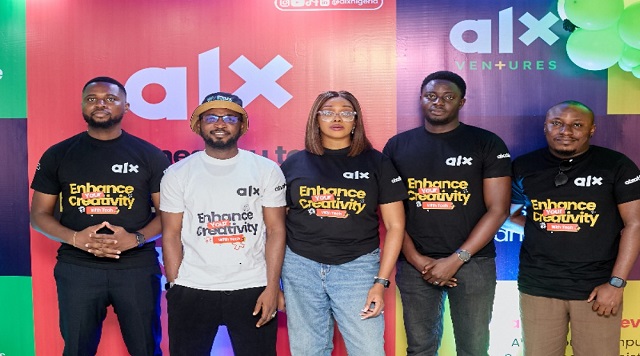E-Business
NIMC Uncovers Syndicate Issuing Fake NINs to Nigerians

National Identity Management Commission (NIMC) has said that it has uncovered syndicate issuing fake National Identity Numbers (NINs) to unsuspecting Nigerians.

Abisoye Coker-Odusote, director general, NIMC also said that several suspects involved in the fraudulent scheme have been arrested and are currently facing prosecution.
Members of the syndicate were apprehended following a complaint from a customer who reported paying N120,000 to modify her birth certificate, a service fraudulently offered by individuals posing as NIMC employees.
“This data does not come to our server and a lot of Nigerians have been scammed,” Coker-Odusote said, emphasizing the gravity of the issue.
The DG further revealed that, as of May 2024, the NIN database had successfully enrolled over 107.34 million Nigerians, a significant increase from 104 million in December 2023.
The NIN has become an essential tool for enhancing security, governance, and service delivery across various government platforms.
Coker-Odusote detailed how the syndicate operated, often masquerading as business vendors or cyber café operators.
They crafted links, developed software, and generated fake NINs, duping many into believing they were legitimate.
The operation was sophisticated. The fake data never reached the official NIMC servers, thereby eluding immediate detection.
The discovery of the fraud ring prompted further investigations, which identified additional suspects operating around NIMC’s annex office.
While the exact number of individuals under interrogation remains undisclosed, the NIMC assured that all perpetrators would face charges related to cybercrimes upon the conclusion of the investigation.
Coker-Odusote expressed her frustration with the ongoing extortion and data breaches.
“We will not allow them to parade as if they are part of us and they are not,” she stated, confirming the emotional and financial toll on victims.
In one notable case, a woman was exploited for over N120,000 under the guise of adjusting official documents, highlighting the severity of the scam operations.
E-Business
ALX Nigeria Launches 2025 Ventures Incubator, Premieres Pan-African “Do Hard Things” Finale

ALX Nigeria is once again proving that when African talent meets the right opportunity, magic happens. In a celebration of innovation, grit, and ambition, ALX officially launched its 2025 Ventures Incubator Cohort, an elite group of startup founders handpicked from across the country, while simultaneously premiering the grand finale of the pan-African “Do Hard Things Challenge” at its Lagos hub.

From tech founders solving community challenges to creatives turning ideas into global solutions, ALX is backing the bold and building the infrastructure to help them scale. The ALX Ventures Incubator is the next big leap for graduates of the Founder Academy, providing them with hands-on mentorship, investor access, and the resources to grow sustainable businesses that shape the future of the continent.
“The launch of the ALX Ventures Incubator is proof of our unwavering commitment to building the infrastructure for African innovation to thrive,” said Ruby Igwe, Country General Manager at ALX Nigeria. “We witnessed incredible potential at our Founder Academy, and this next step ensures that these promising startups receive the support they need to grow into high-impact ventures. It’s about translating potential into lasting impact.”
These new ventures are powered by the same spirit that drove the Do Hard Things Challenge—a bold initiative that saw ALX travel to eight African cities in search of the continent’s most inspiring entrepreneurs. The final stop? Mauritius, where top finalists pitched in a high-stakes finale, now screened live for the Lagos tech and media community.
The challenge took ALX across Lagos, Nairobi, Johannesburg, Kigali, Accra, Cairo, Casablanca, and Addis Ababa, shining a spotlight on resilience, creativity, and unstoppable drive.
“The ‘Do Hard Things Challenge’ embodies the spirit we cultivate at ALX: resilience, ambition, and the courage to tackle complex problems,” said Joshua Ebinabo, ALX Ventures Country Entrepreneurship Development Manager.
“Showcasing the finale from Mauritius here in Lagos connects our local innovators to the broader African story. It inspires our learners, reassures parents about the future of tech, and shows business leaders the investment-ready talent right here in our ecosystem.”
The event brought together founders, business leaders, creators, and media influencers—all gathered to witness what happens when African talent is seen, celebrated, and supported. The energy was electric, the vision was bold, and the mission was clear: empower Africa’s brightest minds to build global solutions from right here on the continent.
Whether you’re a startup founder looking to scale or a dreamer looking for your big break, ALX continues to be the launchpad for Africa’s digital and entrepreneurial revolution.
Learn more about ALX’s tech and business programmes at alxafrica.ng, and follow the movement on YouTube, TikTok, LinkedIn, and Instagram via @alxnigeria.
E-Business
OpenAI Eyes Chrome Acquisition if Google is Forced to Sell

Nick Turley, OpenAI’s Head of Product, testified in Washington that the company would be interested in acquiring Google’s Chrome browser if antitrust enforcers succeed in forcing Alphabet to sell the popular web browser.

This testimony was part of a high-profile trial in which the US Department of Justice is pushing to break up Google’s monopoly in the online search and advertising markets, Reuters reported on Tuesday.
The DOJ’s case centres on Google’s dominance in online search, which it argues unfairly stifles competition. A key aspect of the DOJ’s proposed remedies includes requiring Google to divest assets, including its Chrome browser, to restore a more competitive search environment.
According to the report, Turley’s statement provided insight into OpenAI’s competitive positioning within the generative AI space.
He noted that Google’s refusal to partner with OpenAI for access to its search technology within ChatGPT had pushed the company to explore alternative partnerships, particularly with Microsoft’s Bing.
Turley had previously written that ChatGPT leads the consumer chatbot market and did not consider Google its biggest competitor, according to an internal OpenAI document presented by Google’s lawyers during the trial.
He clarified that the document was meant to inspire OpenAI employees and emphasised that the company would still benefit from distribution partnerships, Reuters reported.
Earlier in the day, Turley testified that Google rejected OpenAI’s bid to use its search technology within ChatGPT.
OpenAI had reached out to Google after experiencing issues with its own search provider, Turley said, though he did not identify the provider. ChatGPT currently uses Microsoft’s Bing for search.
“We believe having multiple partners, and in particular Google’s API, would enable us to provide a better product to users,” OpenAI had told Google in an email shown at the trial.
OpenAI first reached out in July, but Google declined the request in August, citing concerns about competition. “We have no partnership with Google today,” Turley said.
The trial also highlighted Google’s internal strategy, including efforts to secure exclusive search agreements with major Android device manufacturers like Samsung.
According to Turley, such exclusivity could hinder the development of competing AI technologies, like ChatGPT, which depend on a range of search and data sources.
E-Business
Digital Consumers are Driving a New Era of Online Shopping, Transforming how Nigerian Youth Buy

The digital revolution is hitting Nigeria’s retail scene fast, and it’s being powered by the country’s youth. Armed with smartphones and a demand for affordability, they’re shaping the e-commerce industry where convenience reigns supreme.

Nigeria’s internet users, reaching more than half its population, creates a strong foundation for e-commerce growth. This growth is significantly fueled by the nation’s youth, a substantial 160 million (70% of the population), whose tech-forward nature drives the popularity of platforms like Temu, satisfying their demand for accessible and budget-friendly online retail.
This generation has flipped the retail script. Value is their compass, price comparisons their weapon, social media their guide, and convenience their non-negotiable. This isn’t just shopping; it’s a calculated pursuit of savvy options, the widest selection, and the best value-for-money deals.
The power of finding a good deal is undeniable, especially for these shoppers watching their wallets. Social media is a testament to this, filled with posts celebrating the newfound ability to purchase items once considered luxuries.
Take Anwulika Udanoh (@Anwulika Udanoh on Facebook), for example. Her recent post, detailing her shopping experience on Temu, is a perfect snapshot of this online shopping revolution. She stumbled upon affordable jewelry on the platform, swayed by glowing reviews, and took a chance. What followed was a delightful surprise: customised earrings bearing her name, a feat once thought impossible.
Even her son’s friend jumped on the personalisation trend with custom pendants. ‘Their prices will shock you,’ she wrote, with genuine excitement. And despite any concerns about longevity, the sheer joy of affordable, personalised style at good quality won her over. That’s the power of this shift.
This goes beyond mere bargain hunting; it’s about empowerment. It’s about unlocking the ability to express your unique style without sacrificing your financial stability. It’s about finding those small sparks of joy, like personalised jewelry that feels uniquely yours. For many, these platforms are a portal to a more colourful and individually tailored life.
Then there’s the spirit of adventure, captured in a simple tweet by Steph (@steph on X): ‘ordered a couple of desk items, wish me luck.’ It’s the essence of a generation eager to discover new ways to elevate their everyday life.
Launched in the country in November 2024, Temu offers a diverse selection that aligns with the dynamic needs of young Nigerians. The direct-from-factory online marketplace is known for cutting out layers of middlemen and their associated markups and costs, passing on savings to consumers. Serving more than 90 markets globally, Temu has become one of the most visited e-commerce sites worldwide and a top Apple-recommended app of 2024.
Let’s be real: budgets matter. In a country where every naira is carefully considered, competitive pricing and accessible payment methods, aided by partnerships like Temu and Verve, empower Nigerian shoppers with greater choice and freedom to embrace trends while making the budget go beyond. It’s like opening up a world of possibilities.
Adding to the appeal is a user experience designed for the mobile age. With 193.9 million cellular connections, smartphones are the gateway to this digital world, and intuitive platforms allow for seamless browsing and purchasing on the go, perfectly aligning with the dynamic rhythms of young Nigerian life.
This mobile-first approach is further amplified by the power of social proof. In a nation of 31.60 million social media users, reviews and recommendations carry significant weight, transforming satisfied shoppers into passionate brand advocates.
A growing digital environment, particularly in urban areas, presents a rich opportunity for platforms that resonate with the aspirations of young people. They seek more than just products; they want to build online communities, create digital identities, and shape their lifestyles.
Real stories like those of Anwulika and Steph show that Temu isn’t just a place to shop, but a platform that’s unlocking joy, creativity, and financial freedom for Nigeria’s youth. Whether it’s personalised jewellery, playful desk accessories or everyday essentials, Temu is turning everyday purchases into moments of empowerment — proving that with the right platform, anything is possible.

 E-Business2 days ago
E-Business2 days agoALX Nigeria Launches 2025 Ventures Incubator, Premieres Pan-African “Do Hard Things” Finale

 E-Financial2 days ago
E-Financial2 days agoInsurance Bill Seeks Compensation for Customers of Failed Firms

 General News19 hours ago
General News19 hours agoUBA Marks 75 Years of Excellence at 65th AGM

 Telecom19 hours ago
Telecom19 hours agoMTN Appoints Egerton Idehen as Chief Broadband Officer

 E-Financial2 days ago
E-Financial2 days agoSANEF’s Uche Uzoebo Highlights AI as Next Frontier in Advancement of Financial Inclusion

 E-Financial2 days ago
E-Financial2 days agoFintechs Add $18m to New Tax Initiative

 E-Financial3 days ago
E-Financial3 days agoUnion Bank’s Edu360 Initiative Scores Big for Nigerian Football Development

 Telecom19 hours ago
Telecom19 hours agoMTN Group Suffers Cyberattack




















